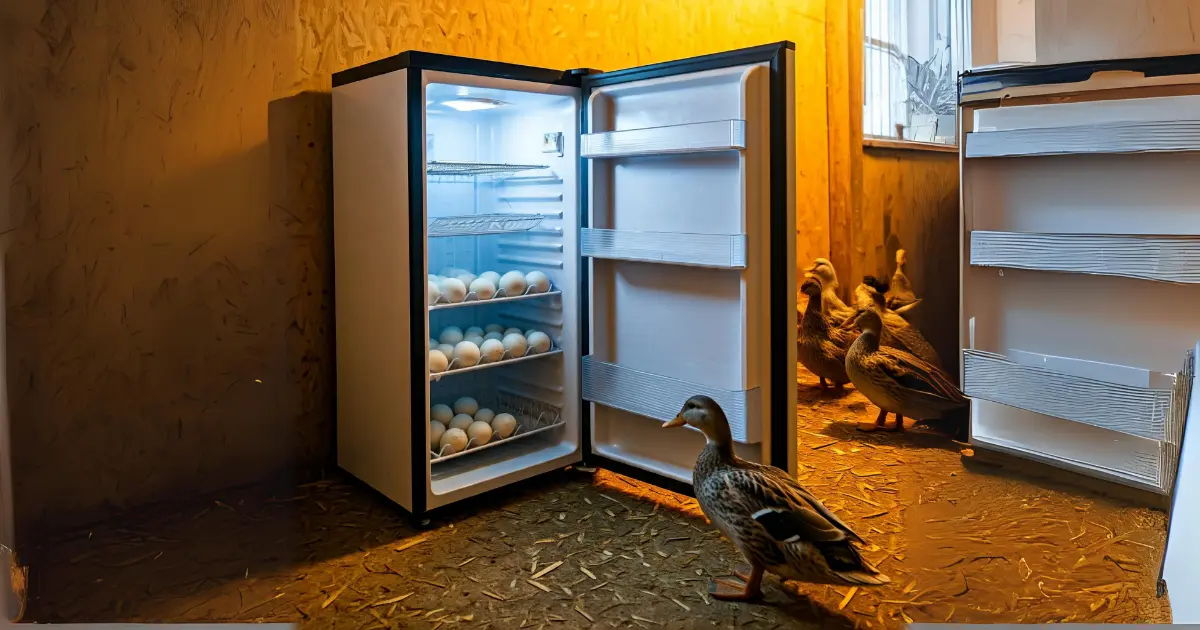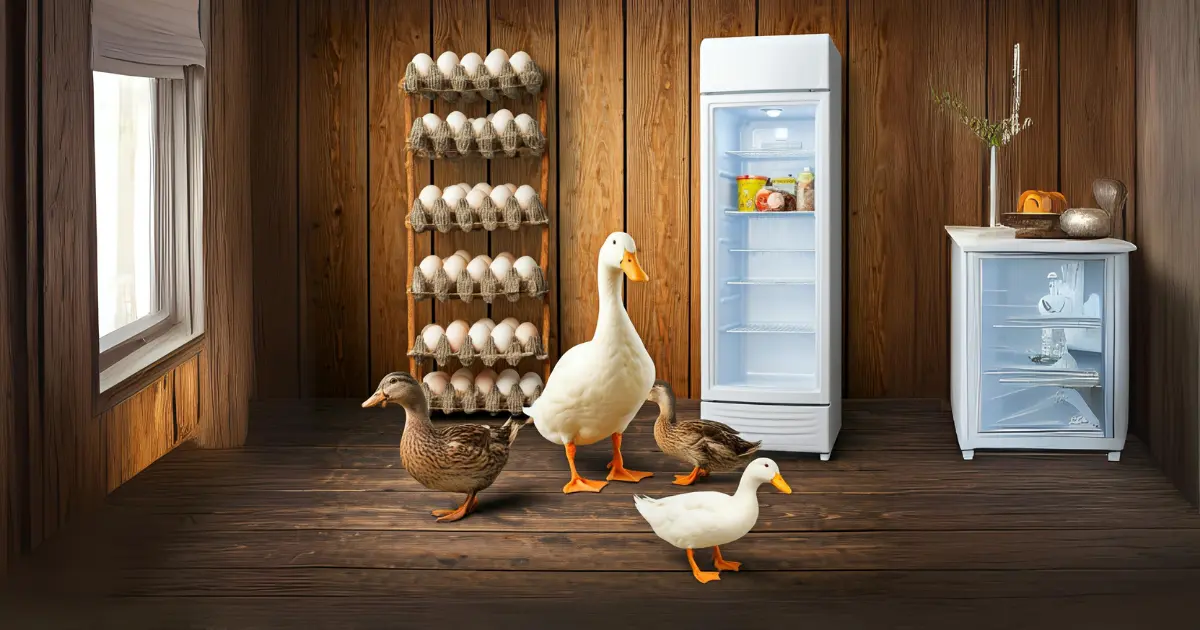Duck eggs are nutritious and rich in flavor, but ensuring they are safe to eat is crucial. But a common question arises – how to tell if duck eggs are bad or good? The quickest way to tell if duck eggs are bad is to perform the float test. If the egg floats, it’s no longer fresh. Today I will cover various methods to check if a duck egg is bad, from visual inspection to the float test. Learn how to confidently determine the freshness of duck eggs.
Visual Inspection for Freshness
One of the easiest ways to tell if duck eggs are bad is by observing their appearance. Check for the following signs:
- Cracks: A cracked shell could let bacteria enter.
- Discoloration: If the egg has unusual colors, it might be spoiled.
- Unpleasant Odor: Fresh duck eggs should have no smell. If you notice a strong sulfur smell, discard it immediately.
The Float Test:

The float test is a reliable method for testing duck egg freshness. Here’s how to do it:
- Fill a bowl with cold water.
- Place the egg in the water.
- Fresh Egg: Sinks and lays flat on the bottom.
- Older Egg: Stands upright on the bottom but doesn’t float.
- Bad Egg: Floats to the top.
Duck eggs float because they develop an air pocket as they age. A floating egg indicates that it has gone bad and should not be eaten.
Candling the Egg for Freshness
Candling is another effective method used to check duck egg quality. Hold a flashlight or candle behind the egg and observe:
- Fresh Egg: You should see a small air cell at the broad end, clear whites, and a well-defined yolk.
- Bad Egg: Larger air pocket, cloudy white, or a yolk that doesn’t hold its shape.
Candling can be especially useful if you’re dealing with farm fresh eggs that haven’t been washed or refrigerated.
Smell Test for Spoiled Eggs

You can use the sense of smell to identify a spoiled egg. Crack open the egg and give it a sniff. A fresh duck egg will have a neutral odor. If you detect a foul, sulfur-like smell, the egg has gone bad. This is often the most obvious sign of spoilage.
How Long Can Duck Eggs Last?

Duck eggs, when stored properly, last longer than chicken eggs. Here’s a general guideline:
- On the Counter: Up to 2 weeks, if unwashed.
- In the Fridge: 3-4 weeks.
- After Washing: 2 weeks in the fridge.
The longevity of duck eggs depends on whether they’ve been washed. Washing removes the protective bloom, which shortens their shelf life.
For more about refrigeration the eggs check the article linked below:
Do Fresh Duck Eggs Need to Be Refrigerated?
Fresh vs. Bad Duck Eggs
| Test | Fresh Duck Eggs | Bad Duck Eggs |
| Visual | No cracks, discoloration, or spots | Cracked, discolored, or moldy |
| Float Test | Sinks to the bottom | Floats to the top |
| Candling | Small air cell, clear whites | Large air cell, cloudy whites |
| Smell | Neutral, no noticeable odor | Strong, sulfur-like odor |
| Storage Life | Up to 3-4 weeks in the fridge | Spoiled if left too long (over 4 weeks) |
Storing Duck Eggs

Proper storage is key to extending the shelf life of duck eggs. Unwashed duck eggs can be kept on the counter for up to 2 weeks, thanks to their protective bloom. However, once washed, it’s best to refrigerate them immediately, where they can last for 3-4 weeks. To ensure maximum freshness, always store duck eggs in a cool, dry place or the refrigerator. When storing in the fridge, placing them in the coldest part (not the door) helps maintain their freshness longer.
To learn more about the storage of duck eggs, check the article linked below:
Knowing how to tell if duck eggs are bad is essential for safety. Whether you’re using the float test, visual inspection, or candling method, these simple tips ensure your duck eggs are fresh and safe to eat. You have to ensure proper storage for the eggs for a better shelf life.
External Resources
For additional food safety information, you can refer to USDA’s egg storage guidelines.
https://ask.usda.gov/s/article/How-long-can-you-store-eggs-in-the-refrigerator
https://www.fsis.usda.gov/food-safety/safe-food-handling-and-preparation/eggs/shell-eggs-farm-table



